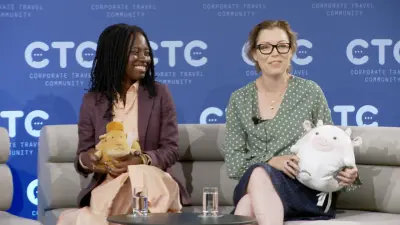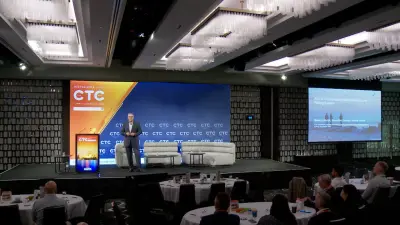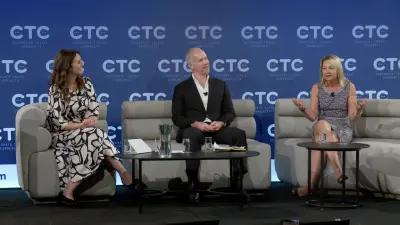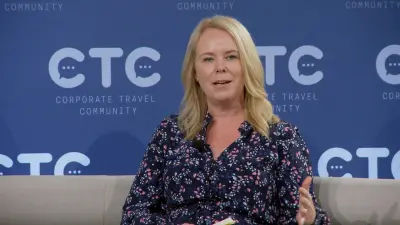Environmental Sustainability – The corporate travel buyer’s voice

Sustainability has become a corporate travel priority, but increased costs, limited data and lack of transparent information still present barriers to making business travel more sustainable. Collaboration will be critical to supporting an enhanced corporate travel policy for travel buyers.
As travel continues its recovery from the COVID-19 pandemic, corporations are refocusing on their green agendas. A majority believe sustainability will be either a ‘moderate’ or ‘high’ priority in the next 12 months, while many have become more focused on the sustainability objectives of their corporate travel programme.
Companies are making significant changes to their core operations and processes to become more sustainable and travel procurement plays a key role in sustainability strategies. Travel buyers now have stricter guidelines and increasingly travel teams are seeking to identify locations and travel partners who hold current or future solutions in sustainability.
What is the travel buyers’ perspective of sustainability?
Are they getting pressure from above to include sustainability in RFPs?
How important is sustainability to them? Are travellers already asking for more?
Environmental Sustainability – An in-depth look at the CAPA/Envest 2022 Benchmarking

Mr. Steve Limbrick – Executive Director, Envest
Environmental Sustainability – The industry responds with innovation and technology

Businesses are having to take a much more pro-active stance with their sustainability drives. With cries of ‘greenwashing’ over previous offset schemes travel providers now need to be transparent in their communications and honest in their activity.
It has been said that the least-emitting flight “is one that doesn’t happen at all”. While we will see substitution to other forms of travel for short-haul (especially short-distance domestic travel) that is not a practical solution in a world where long-haul travel has proliferated and will present an increasing challenge for travel suppliers.
Climate scientists say that to get climate change under control, businesses need to reduce their emissions and consumers will become increasingly demanding as the subject of sustainability dominates the headlines.
How are businesses working to meet sustainability demands?
What is the industry doing to help answer buyers’ questions and provide a solution?
Technology Workshop: Digital Transformation strategies and distribution

The travel and tourism industry has been among the early adopters of digital transformation, but processes are continuing to evolve. For businesses, digital adaptation is not optional but rather an indispensable condition to continue being competitive and respond to the continuously growing consumers’ demands.
Personalisation has become a crucial element of the travel business, mobile devices are now standard search and booking channels, AI-powered applications and technology are more commonplace, and data is driving digital transformation journeys.
For travel buyers it creates a complicated framework and understanding the technologies that exist to help themselves and travellers in a post COVID world is complex.
This workshop will discuss processes to help buyers understand what they should look out for with technology partners, look at how buyers can truly integrate into their technology partners, and question if technology is the answer to all the buyers’ problems.
Trends and innovations shaping the way businesses stay, work and pay

events corporate travel community
Duty of Care: Are you ignoring the rear view mirror?

Travel has rebounded, but are organisations being caught out by not looking in the rear view mirror?
The travel experience has changed, not only due to pandemics, current conflicts and political unrest, but staffing shortages across the board, making the whole travel experience tough.
In this important discussion we talk through your 2023 travel risk programme musts to support your travellers health, safety and wellbeing and meet your duty of care and legal requirements.
The other elements of ESG: it is not just about ‘E’

It is now almost 20 years since the term ESG – standing for environmental, social and corporate governance – was first coined and it has now grown from a corporate social responsibility initiative launched by the United Nations into a global phenomenon.
ESG is an umbrella term that refers to frameworks designed to be integrated into an organisation’s strategy to create enterprise value by expanding the organisations objectives to include the identification, assessment and management of sustainability-related risks and opportunities in respect to all organisational stakeholders (including but not limited to customers, suppliers and employees) and the environment.
However, the focus to date and has more heavily fallen on the first letter of the acronym, but there is much more to delivering on ESG promises than solely looking at the environment, even if that is a worthy cause. Businesses need to ensure that in the fog of environmental strategies that they are not forgetting about social and corporate governance initiatives.
Corporate social responsibility (CSR) is a form of international private business self-regulation which aims to contribute to societal goals of a philanthropic, activist, or charitable nature by engaging in or supporting volunteering or ethically oriented practices.
CSR is a self-regulating business model that helps a company be socially accountable to itself, its stakeholders, and the public. By practicing CSR, also called corporate citizenship, companies can be conscious of the kind of impact they are having on all aspects of society, including economic, social, and environmental.
CSR helps both improve various aspects of society as well as promote a positive brand image of companies. But how can the corporate travel industry ensure it meets each of the elements of ESG?
New TMC models – A burst of change is coming, will the old model still be relevant

events corporate travel community
CTC Outlook: State of the Industry

• Benson Tang – Executive Director, CTC – Corporate Travel Community
The Metaverse: The future of travel?

Did you know that the global metaverse market size was AUD47 Bn in 2022 and is predicted to grow 39% yearly to AUD678 Bn by 2030?
In ‘The Metaverse – The Future of Travel?’ you will:
Learn what the metaverse is
Identify opportunities for the travel industry
Understand how to prepare your business for the future of travel


